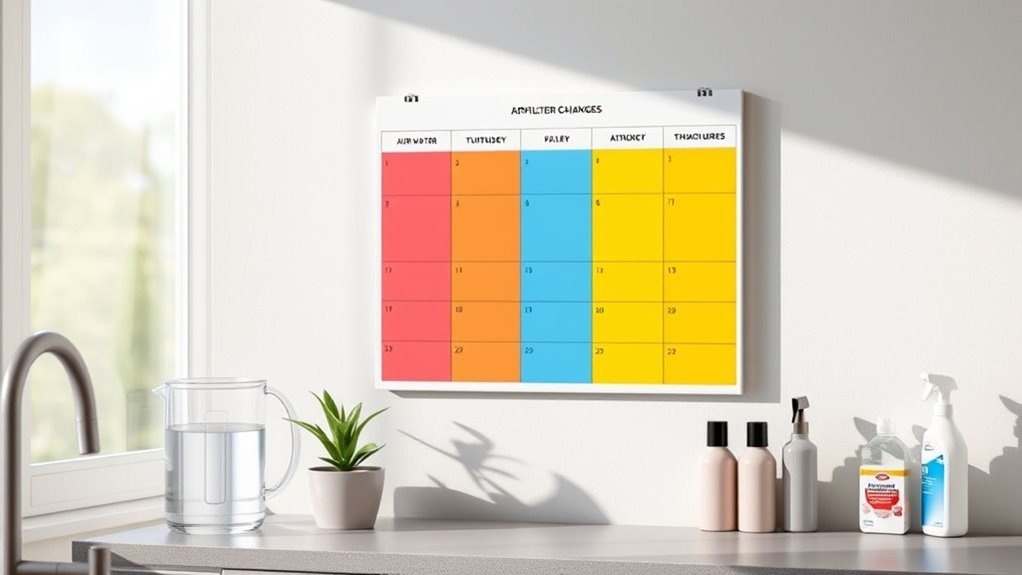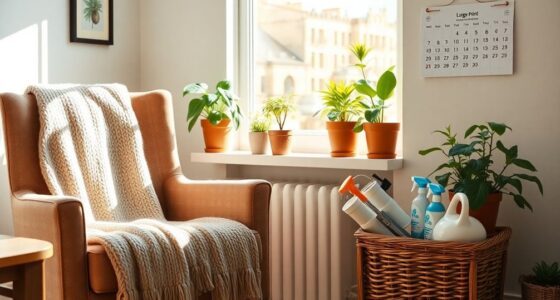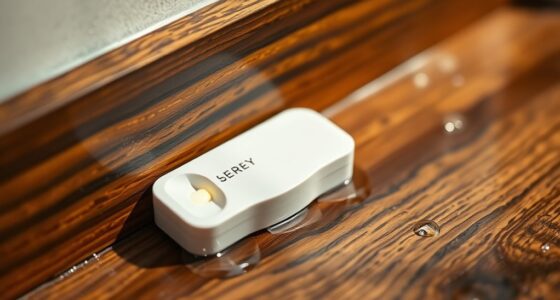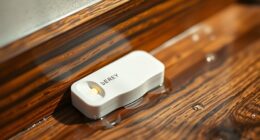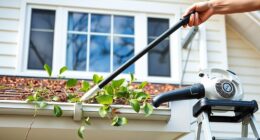Creating a filter change calendar for your air, water, and appliances keeps maintenance simple and consistent. Schedule replacements based on recommended intervals—every 1 to 3 months for air filters, and more frequently if you have pets or allergies. Use reminders on your phone or mark your calendar to stay on track. Regular upkeep boosts system efficiency and safeguards your health. Keep going to discover easy tips that make your filter management even simpler.
Key Takeaways
- Create a schedule for regular filter replacements based on manufacturer recommendations and household needs.
- Use calendar reminders or apps to automate alerts for upcoming filter changes.
- Track the last replacement date to maintain a consistent filter maintenance routine.
- Adjust replacement frequency for air, water, and appliance filters depending on usage and environment.
- Regularly review and update your filter change calendar to ensure optimal system performance and health.
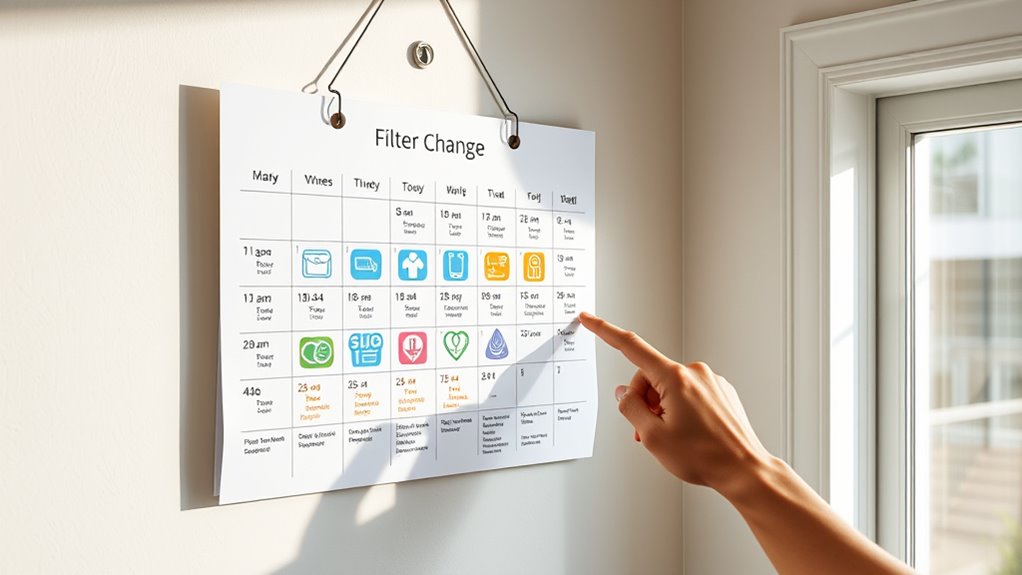
Keeping track of your filter changes guarantees your systems run smoothly and efficiently. Whether it’s your home’s air filters, water filters, or appliance filters, staying on top of their maintenance prevents costly repairs, improves energy efficiency, and ensures you’re always breathing and drinking clean. A well-organized filter change calendar simplifies this process, so you don’t have to remember every replacement date. Instead, you can set reminders or mark your calendar, giving you peace of mind and saving you time.
Keeping track of your filter changes ensures smooth operation, saves money, and keeps your home healthy and clean.
For your HVAC system’s air filters, the general rule is to replace them every 1 to 3 months, depending on the filter type, household size, and air quality. If you have pets, allergies, or smokers in the house, you might need to change filters more frequently. Keeping a record of your filter’s last change helps you stay consistent. Some smart filters come with built-in timers or indicators, but if yours doesn’t, setting a recurring reminder on your phone or calendar is a smart move. This way, you’ll avoid letting dust and allergens build up, keeping your indoor air fresh and healthy. Regular filter maintenance also contributes to respiratory health and overall well-being.
Frequently Asked Questions
How Do I Know Which Filters Are Compatible With My Appliances?
You can find compatible filters by checking your appliance’s manual or label, which lists the specific model numbers and filter types needed. Visit the manufacturer’s website or contact customer support for guidance. Bring the old filter to the store for comparison or use online tools that help match your appliance model with the right filter. Always double-check specifications before purchasing to guarantee proper fit and performance.
Can I Change Filters More Frequently Than Recommended?
Ever wonder if changing filters more often is better? Yes, you can, but it might not always be necessary. Overchanging could lead to waste or unnecessary expenses. Focus on observing your filters—if they’re dirty sooner, go ahead and replace them earlier. Keep an eye on performance and signs of clogging. Regular checks help you decide when to change filters, ensuring peak efficiency without overdoing it.
What Signs Indicate It’s Time to Replace My Water Filter?
You should replace your water filter when you notice a decrease in water flow, a change in taste or odor, or if the filter has reached its recommended lifespan. Additionally, if your water quality suddenly worsens or if your filter’s indicator light signals it’s time, these are clear signs. Regularly checking for these signs guarantees you always have clean, fresh water and maintain your filtration system’s efficiency.
Are There Eco-Friendly Options for Replacement Filters?
Yes, you can choose environmentally friendly filters that are eco-conscious and energy-efficient. Look for filters made from sustainable, biodegradable, or recycled materials that reduce waste and minimize environmental impact. Brands often label their products as eco-friendly, so check for certifications or eco-labels. By selecting these sustainable solutions, you’re supporting a cleaner, greener globe while maintaining safe, sparkling water. Making mindful choices makes a meaningful difference!
How Do I Dispose of Used Filters Responsibly?
You should check if your local recycling center accepts used filters, as some do. If not, consider repurposing filters for DIY projects or composting if they’re biodegradable. Avoid throwing filters in regular trash, as they may contain harmful substances. Always follow manufacturer instructions for disposal, and look for eco-friendly filters made from sustainable materials to reduce environmental impact in the future.
Conclusion
Sticking to your filter change calendar might seem like a small task, but it’s the secret to a healthier home. Think of it as giving your air, water, and appliances a fresh start—like a morning coffee for your house. It’s easy to forget, yet vital for comfort and savings. Embrace the routine, and you’ll enjoy a cleaner, more vibrant space. After all, a little effort now means fewer worries later.
